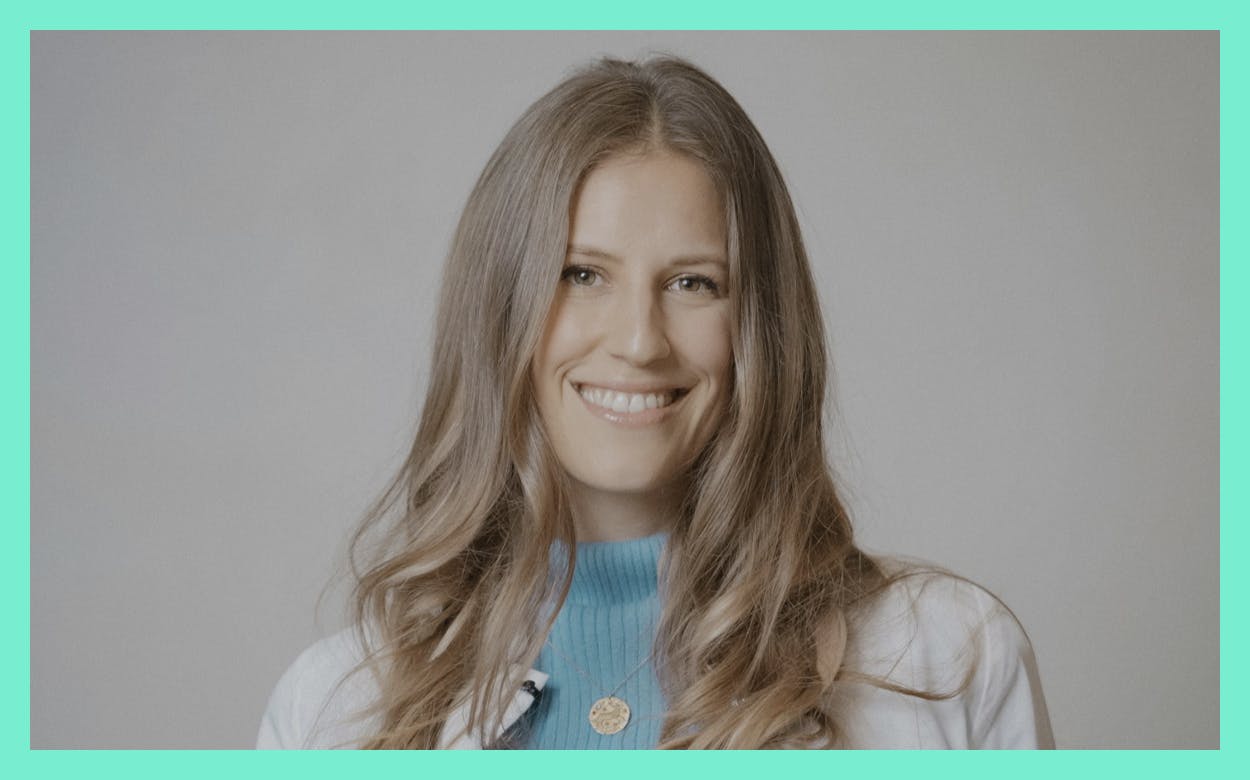Dr. Anne Latz (CMO, Hello Inside)
Anne Latz is a medical doctor (certified in nutritional and lifestyle medicine) with an MBA and a doctorate in neuroscience, and Chief Medical Officer and co-founder of the scientific self-care and prevention startup Hello Inside. She holds a post-graduate certificate in Patient Safety, Quality, Informatics, and Leadership from Harvard Medical School, and she has experience in patient care as well as private and public sector healthcare.

Can you explain your job to a five year old?
I heal with my words and by connecting the right people. First, I listen to people to understand their wishes or questions. Then, I explain complicated things about our body in simple words. Different people need different stories to understand what is important for them.
What excites you most about your job?
Working in healthcare in a one-to-one human interaction is very rewarding. The field of healthcare innovation is even more exciting, as the scope and potential for improvement—and the ability to reach a big number of people—are enormous. My job in digital medicine, which fortunately is also my passion, thus allows me to help change processes on a societal level. What gives me drive on a daily basis is the ability to create relevant solutions for individuals, empowering by means of health education, and communicating through positive psychology, so I can contribute to transformations in a learning healthcare system. Also, I love meeting new, inspiring, and diverse people via my job—this gives me energy.
Which trend will change the future of medicine?
The 4Ps are here: personalization, prevention, participation, and prediction. Healthcare is becoming more personal than ever: The discipline will be more and more individualized in terms of solutions, treatments, and educational resources, ultimately encouraging people to live and act more preventively (finally!). Interactions will become more participatory, and interventions—fueled by technology, science, and analytics—will become more and more predictive. This sounds amazing as a target image but brings the challenge of equity in healthcare to another level. The keyword here is “social determinants of health” (i.e., where we live, work, and educate, all of which significantly shape our wellbeing). We need to spread the potential across all social groups and enable access to those who need “best” care based on the 4Ps the most.
Looking back, which trends have you missed or underestimated?
I worked in the field of psychotherapy in a hospital setting and always found psychological health to be both crucial and underserved. Psychotherapy apps were among the first digital solutions accepted by care providers in support of their work. Due to the pandemic and societal challenges like lockdown, loneliness, and decentralization, this need was brought to another level, affecting people in care-providing roles themselves. I would never have expected such an immense unmet demand from two years ago to still go without a solution. We still do not have enough preventative measures in place among employers, families, and points of care to strengthen resilience. I really fear we missed the opportunity to prevent some long-term effects on psychological health in our society here.
Which MedTech initiative or startup deserves more attention?
All eyes on Femtech! This segment is way more than fertility and period tracking. There are a lot of initiatives, founders, and diverse teams passionate about creating awareness of the field of women’s health, and they are translating this wisdom into classical healthcare and patient-focused self-care. And this is crucial: There is a huge bias in existing studies on medication and treatment, and other areas, leading to the rise of so-called “gender-specific medicine.” Institutes such as Charité Berlin or AKH Vienna study how diseases differ between men and women in terms of prevention, suitable treatment (remember the 4Ps), social impact, and more. Did you know that more women die of heart disease than men? Yet most studies used to focus on male subjects when developing treatments. What fascinates me is making these new pieces of science understandable and accessible for the broader public, particularly as they are relevant to at least half of our population. The Femtech Insider is a great resource for an up-to-date market overview of innovation in this field.
Where would you put a million dollars?
In translation of science and innovation to a broader public. There is one digital transformation trend that really stands out to me: If we create another (digital) divide between those who can and those who cannot access care, we are not leading the way innovation would otherwise allow us to. A million dollars could be well-used to strengthen health equity, by making innovative tools and biosensors such as CGMs accessible, understandable, and affordable for those at risk. Those are the ones who profit the most from personalized approaches, who really need to live a more health-focused life, and who are not yet aware of—or invested in—preventive behavior.
What’s the best advice you’ve ever received?
I was once told that the challenging, painful times will be my personal epiphany moments and key for my journey in hindsight. I agree completely! My path was not as straightforward as it might look; I had some tough decisions to make. And I still miss patient care a lot. But these times of struggle make us human and give us the opportunity to grow. Behind every criticism, including self-directed criticism, is a wish. So listen to it, and develop intuition and empathy for yourself.